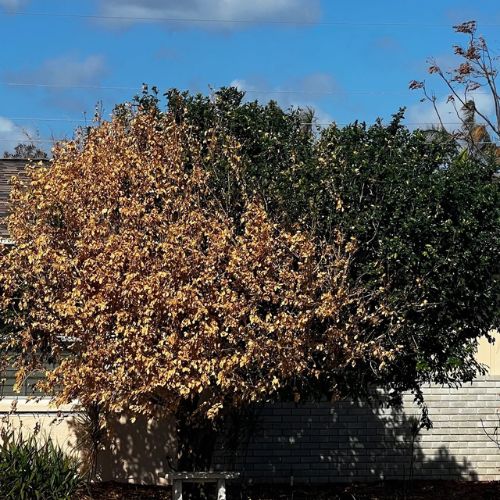Karma is a pretty familiar word in the modern world

Karma is a pretty familiar word in the modern world - we even see it on bumper stickers and graphic t-shirts.
But this is a very old, very deep concept that can be helpful to understand.
The Vedic system understands four types of karma:
Sanchita Karma - this is the total sum of all of the karma we have, both positive and negative.
Prarabdha Karma - this is the karma that is ripe for experience in this current lifetime. Some of the fruit is sweet and some of the fruit is bitter. This is what our astrological chart can show us - which areas (and at what times) are certain things going to manifest? We may have strong and positive karma in the career area but more challenging karma in our relationship area. Or, we may have a fabulous and loving family but perhaps finances are a struggle. We don't experience all of our karmas at the same time. The Vedic astrological system looks at dashas (planetary periods of time) to help us understand when certain themes will be more dominant in our life.
Kriyamana Karma - these are the current actions you are doing. These actions will be added to the pile of Sanchita karma for you to experience at a later date - maybe tomorrow and maybe in fifty years (or fifty lifetimes, depending on what you believe!). But it will be there until it is exhausted. This is where we have a lot of power. We can choose to have positive actions that do not cause harm to ourselves or others. We need to have patience with this karma - just because you did something nice for someone on Wednesday doesn't mean you will receive blessings on Thursday (although you might) but it will come. It is simply the law of karma. However, the more we begin to develop, the less we desire the positive outcomes for our own personal gain.
Agama Karma - These are the thoughts we have, as even thinking about doing things creates its own karma, whether we act on it in the world or not. This also creates opportunity for us. If you don't feel capable of doing good actions, at least begin thinking about them. Bring that energy into your mind and develop this wish. Maybe you can develop the wish to be kinder to a troubling family member, or develop a wish to have a regular meditation or prayer practice. This can be a place to start.
The Vedic system also considers different strengths or degrees of intensity of karma.
Dridha Karma - this is fixed karma. This is often what we refer to as "fate" or "destiny" and indicates that something is strongly on our path in this life. No matter how much you want to avoid it, there is a force pushing you in this direction. This can be indicated in the astrological chart by the same theme showing up in multiple ways.
Dridha-Adridha Karma - this is mixed karma. Some things we have some control over even though there may be indications that a certain path is present. For example, perhaps there is a genetic tendency in your family for heart disease. For family members who pay attention to their diet and exercise, who don't smoke and keep stress levels and inflammation down, they may not manifest this problem (or have a very minor version of it) even though siblings and other relatives suffer from it. The karma was present but because it was mixed there was space for free will to intervene. With effort, you can change things in a more positive direction.
Adridha Karma - this is karma that is not fixed. This is where we have much more free will to move in the direction of our choosing. But, all of the choices you make in life will contribute to our Sanchita karma, so set yourself up well.
There is one more concept that I want to share, which is a bit mysterious. It is called Rnanubandhana. Rnanu means death and Bandhana means ties. This is understood to be deep, lasting ties that bind you together with another person. There may be a relationship in your life that simply does not make sense, but one that you feel strongly about and are unable to end. If so, there may be a rnanubandhana with this person, and it may not end until the karma is exhausted. Sometimes this can help us understand decisions we make and can give us self-compassion when it seems we should be moving in a new direction but in fact, we feel powerless to make a change. This can be a good place to use our Agama Karma, and begin to develop the wish that we complete the karma with this person and feel free to make a change. When the karma is complete, we will be ready.





.jpg)
.jpg)
.jpg)







